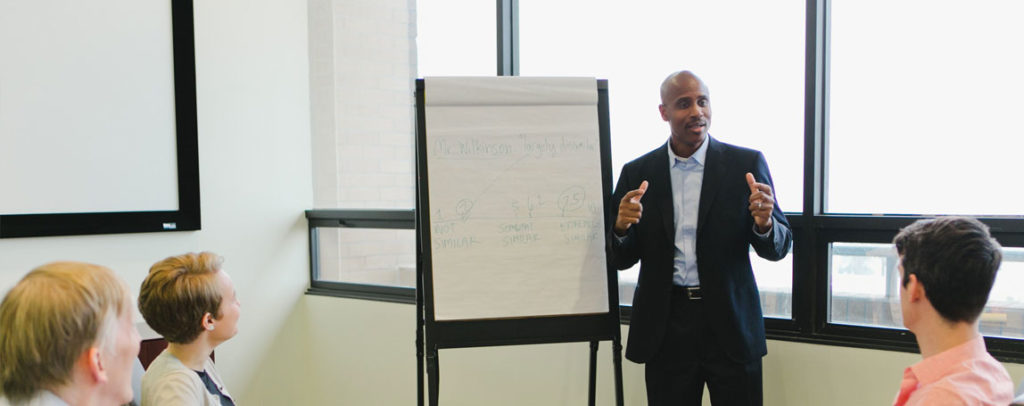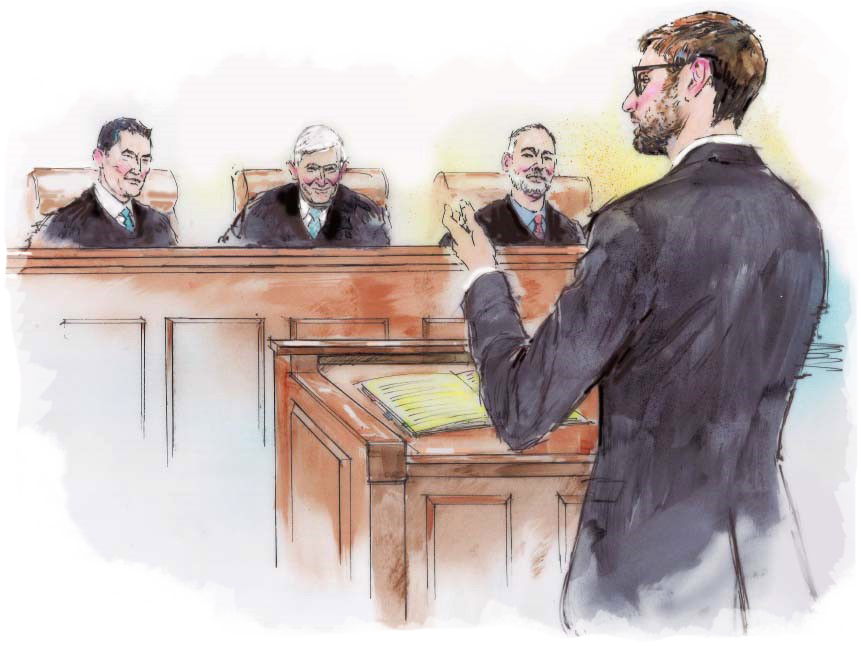Unrivaled associate development
Because we only get paid if we win, we need our young lawyers to become effective trial lawyers as quickly as possible. Here is how we make that happen.

Early training and responsibility
There is no substitute for experience.
From day one, we begin preparing our associates with the litigation and trial skills that win cases. As a result, our associates can soon (within their first year at the firm) take critical depositions, write and argue summary judgment motions, and examine witnesses at trial. During meetings, associates at our firm do not take notes for partners—they advocate on behalf of their clients against partners from major law firms.
For example, just two months after becoming an attorney (and after extensive practice and receiving substantial guidance), Simon Franzini argued a claim construction hearing in federal court in a high profile patent infringement matter:

Based on the arguments that Simon presented in our briefs and during the oral argument, we prevailed on each of the six disputed claim terms.
As a second example, as a second year associate, Jonas Jacobson successfully briefed and argued a Federal Circuit appeal against Google. For the oral argument, Google sent the chair of the appellate practice from a large firm. Here is an audio recording of the argument. And here is the result.

Deliberate practice
At Dovel & Luner, our attorneys’ commitment to improving their skills does not stop after their first few years at the firm. We work hard to improve the skills of each lawyer at our firm (from our most junior associates to our senior partners). We do this through deliberate practice.
The term “deliberate practice” comes from the science of expert performance.

Anders Ericsson, et al., The Role of Deliberate Practice in the Acquisition of Expert Performance, 100 Psyc. Rev. 363 (1993).
“Deliberate practice” means an “activity designed specifically to improve performance” that “can be repeated,” where “feedback on results” is “continuously available.” Geoff Colvin, Talent Is Overrated: What Really Separates World-Class Performers from Everybody Else, p. 66 (2008).
We apply deliberate practice to all aspects of litigation, from writing to presentation to cross-examination skills. For example, we participate in “trial lab” two to five times per week, practicing cross-examination, presentation, and other advocacy skills, with focused problems and immediate feedback.

Simon Franzini practicing cross-examination
Through deliberate practice, our associates (as well as our partners) hone their skills in all aspects of litigation and persuasion.
Explore your passions
Our firm litigates a variety of cases, ranging from commercial disputes (such as antitrust and breach of fiduciary duty cases) to class actions, to mass torts. Our associates and partners can explore different practice areas and litigate the types of cases that they find meaningful. And if we have not yet established a particular practice area, we encourage all of our attorneys to propose new ideas.